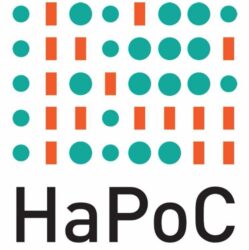Summer School: On Computer Simulation Methods
September 25-29, 2017, High Performance Computing Center Stuttgart (HLRS)
Organizers: Michael Resch, Viola Schiaffonati, Giuseppe Primiero, Andreas Kaminski
Call for Applications
Topic
The transformation of science through computer simulation is often considered to be a methodological one. A lot of literature has been dedicated to determining the relationship between computer simulation, experiments or theories as the classical sources of knowledge. This relation is both methodologically and technically complex. On the one hand, it is difficult for philosophers, social scientists, and historians to gain detailed insight into the methods used among practitioners. On the other hand, for computer scientists and practitioners in general, the methodological limitations and design constraints that simulation techniques impose on hypothesis formulation and testing may not be obvious. The summer school addresses these problems by offering lectures and tutorials on computer simulation methods for scholars from the humanities, social sciences, and computer science.
Schedule
The morning sessions will include lectures by faculty members, focusing on the philosophical, methodological, and technical aspects of different simulation techniques (including numerical methods, software techniques, visualization, agent-based modelling, and computational experiments). These will be followed by project presentations by participants. The afternoons will be dedicated to hands-on tutorials by practitioners. Finally, in the evenings, distinguished scholars will offer lectures on the most inspiring and exciting issues in this increasingly important research area.
Instructors (confirmed and requested)
Nicola Angius (Sassari), Petra Gehring (TU Darmstadt), Andreas Kaminski (Stuttgart), Johannes Lenhard (Bielefeld), Giuseppe Primiero (London), Michael Resch (Stuttgart), Viola Schiaffonati (Milan), Angelo Vermeulen (Delft)
Who is it for?
Researchers (especially but not exclusively postgraduates) from the humanities and social sciences who are interested in learning more about the methodological dimensions of computer simulation;
Computer scientists and practitioners in simulation who are interested in deepening their knowledge on the foundations, methods, and implications of their techniques.
Prerequisites for participation?
Technical skills (knowledge of programming languages, simulation experience) are helpful, but not required. Acquaintance with the literature in contemporary philosophy of science is useful, but will not be assumed.
How to apply?
The number of participants is limited to 20. To apply, email kaminski@hlrs.de.
All proposals must be submitted by May 30, 2017 and include:
(1) short curriculum vitae;
(2) description of your research (max. one page);
(3) questions or topics you are interested in regarding the summer school (just a few lines).
Participants will be notified by June 30, 2017.
What are the costs?
There is no fee, but participants will have to cover their travel and hotel expenses. The organizers will happily help participants organize their journey and hotel stay.
The DHST/DLMPST Interdivision Commission on the History and Philosophy of Computing (www.hapoc.org) will offer two bursaries of $250 each to support travel and accommodation costs of young researchers. To apply for this funding, please forward your application to
Liesbeth de Mol liesbeth.demol@univ-lille3.fr
Giuseppe Primiero G.Primiero@mdx.ac.uk
by May 31, 2017. Applicants will be informed of decisions pertaining to both funding and proposal submission at the same time (June 30, 2017).
